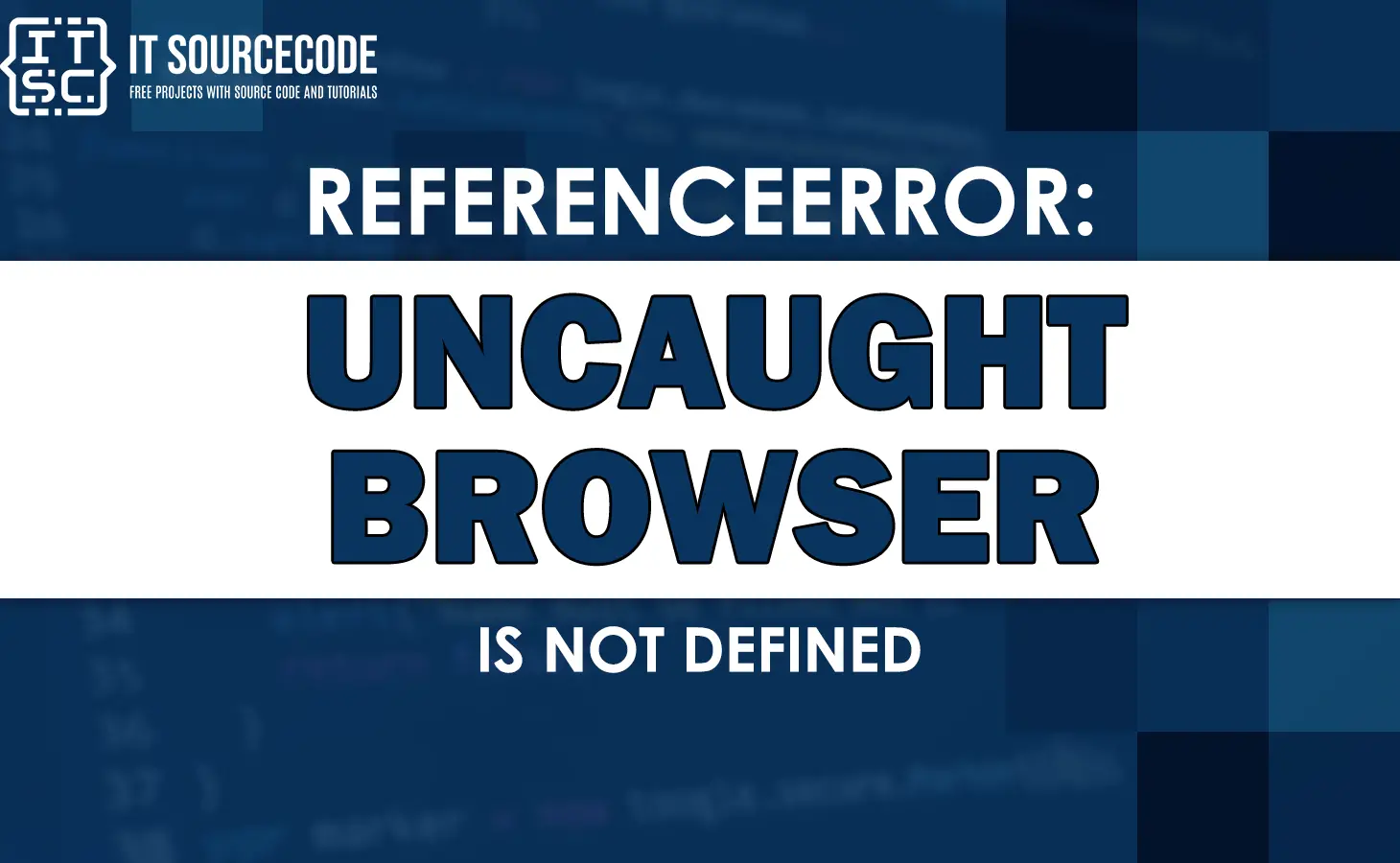This article focuses on the “Uncaught ReferenceError browser is not defined” error in JavaScript, which is commonly encountered in web development.
It explains why this error occurs along with its few causes and offers effective troubleshooting to fix it.
Additionally, it addresses the frustrating “uncaught referenceerror: browser is not defined” error and provides practical solutions to resolve it.
Why uncaught referenceerror: browser is not defined occur?
The error “Uncaught ReferenceError: browser is not defined” typically occurs when you’re trying to use a variable or object called “browser” that has not been defined or is not accessible in the current scope.
In web development, the “browser” object is typically associated with client-side JavaScript running in a web browser environment.
However, it seems that in your specific case, the “browser” object is not recognized or available.
Generally, it could be a few reasons for this error:
- Incorrect or missing script
- Compatibility issue
- Scope issue
- Typos or naming issues
Example Uncaught referenceerror
Here’s an example program that could cause the “Uncaught ReferenceError: browser is not defined” error:
// This is a sample JavaScript code that uses the browser object
// Accessing browser-specific API
browser.tabs.create({ url: "https://example.com" }, function(tab) {
console.log("New tab created with ID: " + tab.id);
});
// Some other code...
In the above example, the code is attempting to use the browser object to create a new tab using the browser.tabs.create() method.
However, this code is designed to be executed in a browser extension or add-on environment that supports the WebExtensions API, such as Firefox.
If you try to run this code directly on a regular web page or a Node.js environment, you will encounter the “Uncaught ReferenceError: browser is not defined” error.
This error occurs because the browser object is specific to browser extensions and is not recognized or defined in those other contexts.
How to fix uncaught referenceerror: browser is not defined?
To resolve the “Uncaught ReferenceError: browser is not defined” error, there are several potential solutions available depending on your specific situation.
Here are some examples of solutions along with accompanying programs:
Run the code in a browser extension environment
Ensure that you have a browser extension development environment set up, such as for Firefox using the WebExtensions API.
Then, create a new browser extension project and include the code within the extension’s background script or a content script.
Here’s an example of a browser extension code that uses the browser object:
// This is a browser extension code that uses the browser object
// Accessing browser-specific API
browser.tabs.create({ url: "https://example.com" }, function(tab) {
console.log("New tab created with ID: " + tab.id);
});
// Some other code...
Use conditional checks to determine the runtime environment
Check if the browser object is available, and if not, use an alternative approach or fallback.
This allows your code to be compatible with both browser extension environments and other contexts.
Here’s an example:
// Conditional check for browser object
if (typeof browser !== "undefined") {
// Accessing browser-specific API
browser.tabs.create({ url: "https://example.com" }, function(tab) {
console.log("New tab created with ID: " + tab.id);
});
} else {
// Fallback code for non-extension environments
// For example, opening a new tab using the standard window.open() method
window.open("https://example.com");
}
Modify the code to work in a different environment
In this case, if you’re not developing a browser extension and need to run the code in a different context, modify it to use the available APIs or objects in that environment.
Here’s an example that opens a new tab using the window.open() method:
// Code modified to work in a non-extension environment
// Opening a new tab using the window.open() method
window.open("https://example.com");
That’s a few potential solutions to resolve the “Uncaught ReferenceError: browser is not defined” error.
Remember to select the solution that best fits your specific needs and the runtime environment where you plan to execute the code.
Asides from this error you could also check other fixed errors on this site which might help you in resolving the issues, namely:
Conclusion
In conclusion, the “uncaught referenceerror: browser is not defined” error can impede your progress in web development.
By comprehending its causes and implementing the suggested solutions provided in this article, you can overcome this error and ensure seamless code execution across various browsers.
Remember to prioritize browser compatibility, use conditional checks to determine the runtime environment, and modify the code to work in a different environment to prevent encountering this error.
We hope this article helped you address the issues.
Until next time! 😊

